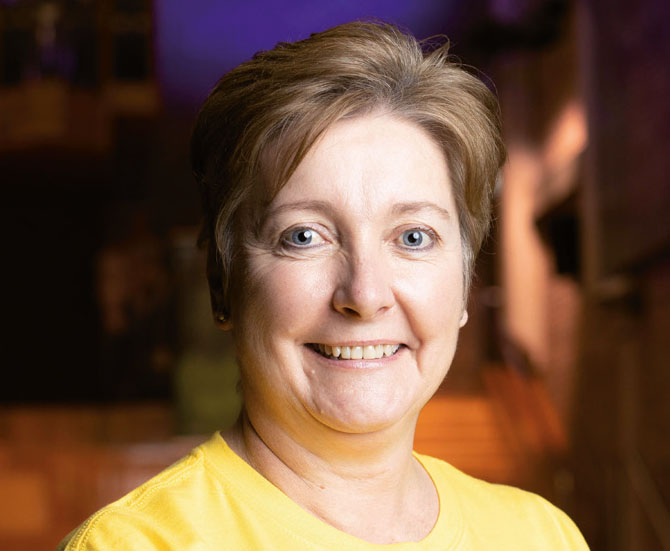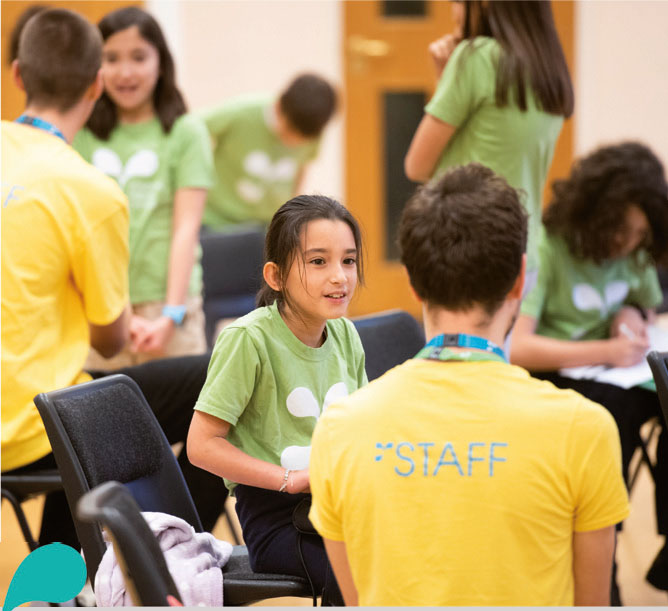
Making the transition from working in a boarding school to working for a choir has been challenging. Some of the differences are obvious. In the choir I see our members briefly when they sign in, and then occasionally when they choose to come out of rehearsal to see one of us. As a school nurse I was among the pupils all day every day, and I had endless opportunities to speak with them. Some differences are less obvious. I have no musical background. Quavers are a snack to me, not a musical note.
I have spent much of the first few months thinking about how I drive an agenda of safeguarding and pastoral care in a choir. Perhaps counter-intuitively, safeguarding (the protection of children from abuse and maltreatment) is clearer to me in terms of how we progress at LYC. I am fortunate to be working with an organisation who understands that the safeguarding of their members is their first and foremost responsibility.
Why provide pastoral care?
The trickier challenge is how we build on our programme of pastoral care, which I define as mental and emotional wellbeing. We have a great foundation, as was illustrated by LYC's response to the challenges that Covid brought to our members, described in earlier articles for MT (August 2021 and December 2021).
But before we look at how, it is worth asking the question of whether we should see pastoral care as within the scope of what we do. It is an important question. Our members, in general, come to choir because they love singing, not for pastoral care. Singing is also the driving passion of the leaders in LYC. So why should we take on pastoral responsibilities? Isn't the music enough? Of course, the music is more than enough, and, in contrast to safeguarding, there is no legal obligation to see pastoral care as within our remit.
But I suspect our motivations may go much deeper than the music when we reflect on them for a moment. Ultimately, we may be motivated by seeing children and young people discover and realise their potential. If this is true, music is just the vehicle. It could as easily be dance, or sport, or chess. If we are ultimately motivated by seeing a child reach their potential, then we will be interested in all of the child, including their emotional wellbeing. Perhaps this is what was behind Aristotle's belief that ‘educating the mind without educating the heart is no education at all’. It is certainly this perspective that makes this non-musician presume she may have something to contribute to a choir!

Alison Bastable
How to deliver the care
So, if you are persuaded that pastoral care should be within the scope of what we do, the next question is: how do you deliver pastoral care? It starts with a mindset at LYC, where, at rehearsals, we are always on hand to offer pastoral care. The bookends and breaks in rehearsals frequently present the context. I have captured below some principles that work for us at LYC and could be used anywhere by anyone who sees pastoral care within their remit:
- Show interest in the child. A question like, ‘how was your day at school?’ conveys that you are interested in them, and not just what you are teaching them.
- If you sense that a child is troubled in some way, trust your instincts. Much communication is non-verbal, and the non-verbal cues can often be more accurate than the verbal ones.
- Ask if there is something on their mind, but gently. For example, ‘is it possible you are worried about something?’. The goal is not to force a conversation, but rather to communicate that you care and will listen if they would like to talk.
- Resist providing a solution. Listening is often enough.
- Post-conversation, capture some brief notes. The history may become important. Writing it down will also often bring clarity to the issue.
For a while now, LYC has had in place a ‘Safe Space’ tab in the online members dashboard where our members can raise pastoral concerns confidentially. Building on this, we are launching an online pastoral care portal, structured by age group, that will cover topical issues affecting children and young people today. The members will be free to define topics, we will provide content on the topic, and the members will have room for online discussion. The online nature of the portal reflects the particular challenges of having less frequent face-to-face contact with members than in a school context. It also builds on the strategies developed during Covid for working virtually with members. To engage our members with the portal, we are running a competition for the design of a character who will personify the program. In a future article, I hope to share with you the outcome of the competition and the how the programme has worked.
In some ways, what we are trying to achieve at LYC is very simple: that every child and young person knows that they matter and that we care about their wellbeing. We will not be able to help solve every issue, but we will always show we care.

© BEN TOMLIN
Safeguarding Essentials
If you are setting up a children's choir, there are a few safeguarding essentials to focus on:
- Capture and maintain parent/guardian contact details for members of the choir. You will need two contacts as a minimum. Details should include both home address and mobile number.
- Agree a safe recruitment process for members of staff, including volunteers. The process must include a criminal records (DBS) check.
- Agree a signing in/signing out procedure. Many safeguarding risks and issues can be avoided with clear and robust procedures.
- Consider how first aid would be provided while the children are under your care. You will want to request relevant medical information (e.g. allergies) about the child.
For more information on safeguarding essentials, refer to the NSPCC website: Safeguarding Essentials for Sports, Clubs and Other Activities








